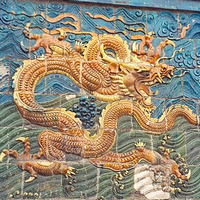The Western press is rife with stories about China's growing conservatism, reflected by an ongoing crackdown on free speech by Chinese authorities as well as a Maoist revival in the interior provinces. In our alarm, we imagine the worst of all possible outcomes: an all-powerful Chinese economy lorded over by a political system that somehow reverts to its communist-era politics of open antagonism with the West. While there are powerful structural dynamics that work against this combination, we should nonetheless not fear it. To the extent that China's economic trajectory is threatening to stall out, as it inevitably must at some point, the instinctive retreat of its political system into "redness" has little to do with the outside world. Rather it reflects the yawning chasm between a party of privileged "princelings" and the increasingly stressed-out masses.
In that sense, China's rise is inherently self-limiting: Either its government submits to political pluralism that truly puts people and their welfare first, or it retrenches into the same sort of bloody populism that Mao Zedong once employed to maintain his personal dictatorship. Either way, China's brief moment of superpower status is likely flashing before our collective eyes at this very moment. But understand this: We would find a raw Chinese democracy a lot more unnerving than a China that regresses into redness.
History tells us that when China suffers internal instability, its foreign policy tends toward the über careful, which means we can shelve all the facile comparisons to Kaiserian -- much less Nazi -- Germany. Historically intolerant and ethnocentric, China tends to turn inward and away from an "inferior" world. It does not stoop to conquer the "barbarians," preferring to isolate its "superior" culture from noxious ideas concerning individual freedom. In other words, there is no civilizational equivalent in China to Islamic jihad. So we need to view China's current bout of "redness," such as it is, as a sign of defensive weakness and not of aggressive strength.

